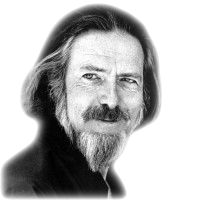
“The mundane and the sacred are one and the same.”
Alan Watts
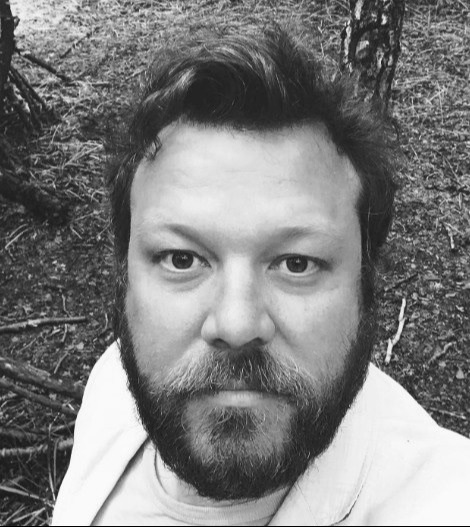
Philosophic Mentor – Master of Insights – Teacher of Presence
Wisdom, insightful learning, contemplation and a Zen-like approach to life.
“A Magical Sage”
A Quote about James from David Ellzey, best-selling author & transformational performer.
Enjoy a soothing cup of tea (or any beverage you love) while you scroll through the information in the column below. If you’re viewing this on a laptop or computer, you’ll find the additional details in the column on the right. If anything resonates with you or sparks your curiosity, don’t hesitate to reach out for more information about this unique approach.
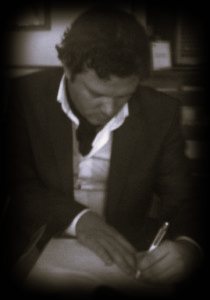

Invite James to your event, James is also available for both live and remote speaking engagements
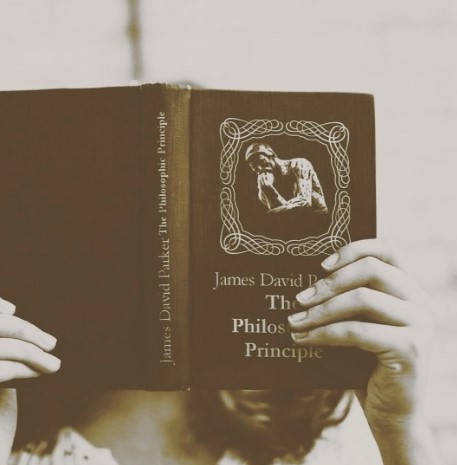
“The closest way to explain presence is as an apparent and so-called state that many people refer to as “being in the zone.” It transcends the experience, while simultaneously being fully immersed in the experience itself.”
Many people notice something unique when they engage with his work. Some have an immediate understanding that goes beyond thoughts or words, revealing that limitations are not as real as they seem, even though they might still feel present. Even if they don’t use these exact terms, there’s a strong sense that something significant is happening. In an instant, you might realize that limitations are not absolute and that true fulfillment is more than just an idea—it’s a tangible reality that may have been previously overlooked.
James, as an independent philosopher, has journeyed to explore life’s most profound questions. He is a polymath who has dedicated significant time and effort to studying various texts and practices across a diverse range of philosophical, intellectual and spiritual traditions. Throughout his life, he has collaborated with leaders and creative minds to delve into significant existential issues.
James is a visionary whose philosophic mentoring is an experiential, practical, and transformative approach to philosophy, emphasizing direct experience, insight and realization rather than abstract theories and intellectual speculation. James uses the word “philosophic” to reflect his deep and contemplative approach to exploring the nature of reality, consciousness, and spiritual truths for your own development, progress, growth, and innovation. His work aims to bridge the gap between Eastern and Western thought, blending metaphysical insights with practical philosophy.
James has a deep understanding and reverence for the philosophical insights.
James discovered philosophical and spiritual teachings and learned meditation from the age of 17, which established the basis for his dedication and engagement for the following twenty-five years. James’ immersion into Applied and Eastern philosophy commenced with the discovery of philosophical inquiry during these formative years. He has spent countless hours in meditation exploring the sense of separation in mental standpoints and subjective attitudes that manifests constrictions.
After pursuing advanced studies, he immersed himself in an intense creative practice, spending long hours composing each day. Through this dedication, he believed he uncovered a fundamental structure of human consciousness, which he referred to as a “rift in Existence,” and felt compelled to share this discovery with others.
James underwent a profound philosophic shift in his twenties, dedicating many years to deep meditation and ultimately leading him to philosophic realizations in his thirties. During this crucial period in his life, he experienced a profound transformation, and went through a significant change. James is not affiliated with any denomination and frequently reminds his audience that we are all conscious human beings first, not defined by our group identities.
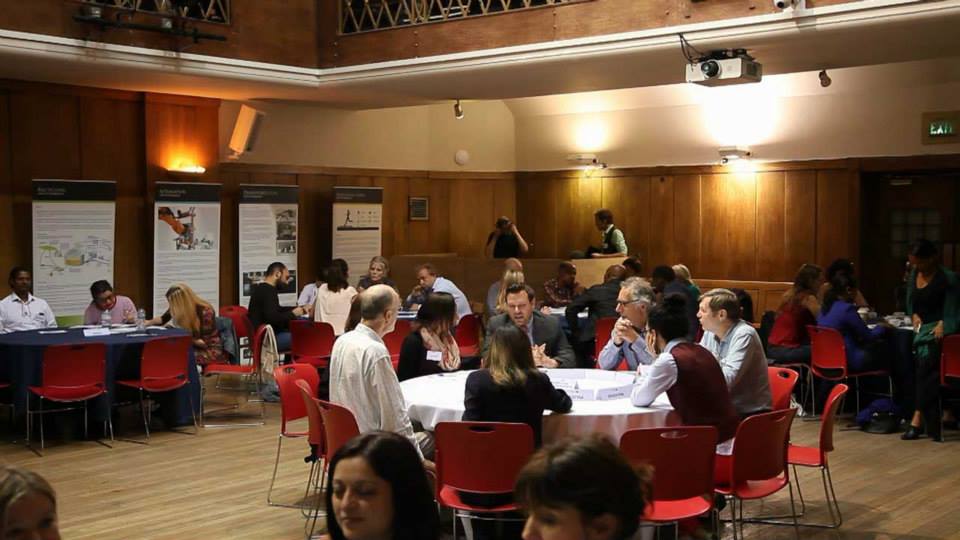
This fusion offers a comprehensive understanding that resonates across cultures and eras, affirming its authenticity and relevance in our apparent modern world.
After earning a degree in politics in 2004 and a Masters in International Law in 2007, he initially worked at the epicenter of law and politics. However, he was driven by the conviction that the quest for how to live exists at a philosophical and spiritual level and this should permeate everyday life.
Through his innovative literary and presentations, James has made significant contributions to avant-garde creations, inspiring individuals to delve deeper into the complexities of the human mind and the world around us. James recognized that transformation must now occur worldwide for humanity to survive as a species. True societal change begins with shifts in the psychology of the people.
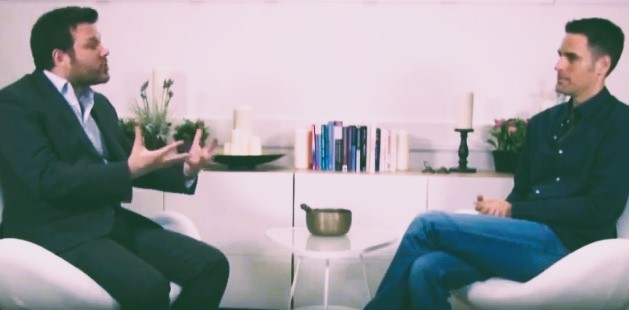
Being interviewed by Alex Howard, CEO of The Optimum Health Clinic Foundation, as one of their teachers and leading experts on the Conscious Live TV series.
James embodies the essence of a true scientific thinker. He begins with observable phenomena, such as the processes of human thought, and examines them with meticulous attention. His exploration deepened as he delved into contemplative practices and embraced their balanced composition, shaping his interests and practices, providing a reflective canvas for his philosophical inquiries.
During this transformative period, James continued his dedicated study of luminaries like Jiddu Krishnamurti, Immanuel Kant, and Ramana Maharshi, alongside exploring various philosophical works resonating with his understanding at the time. His pursuit led him to explore a creative discipline, honing his skills and establishing a body of work that resonated with audiences.
Genuine learning involves a down to earth and authentic letting go of limited assumptions about existence.
Acting as a catalyst for exploration, James draws from a rich of teachings that intricately weave direct insights from Advaita Vedanta, Dzogchen Buddhism, Longchenpa, Mahamudra, Chan Buddhism of Bodhidharma, Theravada Buddhism such as Ajahn Chah and Ajahn Sumedho, Zen Buddhism such as Dogen and Huang Po, Triratna, Kadampa Buddhism, the Satipatṭhāna Sutta, the Mahāsatipatṭhāna Sutta, and the Tipiṭṭhāka, as well as Universalism, Quakerism, Judaism, Sikhism, Gnosticism, Humanism, Inter-Faith, Deep Ecology, Contemporary Philosophy, The Three Principles, Integral Philosophy, Knighthood chivalry, Greek philosophy, Greek mythology, Confucianism, Stoicism, Vedic philosophy, Bhakti yoga, Jnana yoga, Karma yoga, Kriya yoga, Hare Krishna Japa, Kirtan, the Maha Mantra and Gaudiya Vaishnavism philosophy, Taoism, many areas of Western philosophy, the Direct Path tradition, and Christian mysticism.
Meditation is a central axis of his life, and he has participated in extensive retreats, including ten-day vipassana sessions taught by S.N. Goenka and residencies in Thai Forest tradition monasteries. Now, he lives the choiceless awareness articulated by Krishnamurti, the Buddha, Zen teachings, and other spiritual guides, simultaneously dedicating several hours each day to sitting meditation.
“As your philosophic Mentor, I am committed to helping you to be insightful.”
As he explored the depths of consciousness, James continued to compose, meditate informally, and delve into various spiritual writings to understand his experiences. During this journey, he underwent several profound episodes and practiced a form of meditation designed to deepen awareness. Eventually, he began sharing his realization with others, blending traditional spiritual practices with his own unique insights.
With the aim to give people an ambiance and impression, which is like a quality in a person’s character and personality that leaves a strong impact on others. James puts together meetings on philosophy and spirituality, where they read texts, reflect deeply on or discuss philosophical and spiritual matters, and dedicate time to serious and consistent practice or learning in these areas.
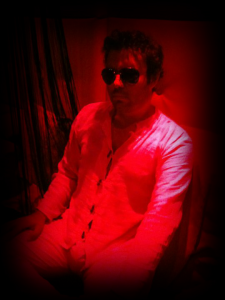
James has been mentoring individuals in philosophical insights, meditation and self-inquiry, aiming to guide them toward genuine liberation. He advocates for the liberation of humanity from internal burdens, promoting independence through a deep understanding of the human psyche. He encourages individuals to be a light unto themselves, urging them not to follow any person, group, or idea but to have their own universal insights into life. James emphasizes the transformative power of philosophical insights and meditation.
Speaking to individuals and addressing audiences simply as a companion on the journey of self-discovery, he encourages them to find insights and understanding within themselves, free from dependence on external authorities. His work serves as a guide and communicator, offering pointers to one’s own insights rather than providing definitive beliefs or conceptual answers.
“The inherent wonder comes from recognizing the marvels of existence.”
James engages in dynamic dialogues with scholars from diverse fields, challenging conventional wisdom and offering fresh insights into ancient traditions and modern scientific theories alike. His interactions with contemporary thinkers, commentators, politicians, and scientists enrich his understanding and catalyze new perspectives on spirituality, psychology, and the human condition.
James’ authentic and impactful guidance transcends formula, seamlessly adapting to various manifestations.
James has also immersed himself in the works of an eclectic mix of renowned writers, thinkers, artists, and meditators throughout his life. Some examples include:
Professor David Bohm, Albert Einstein, Krishna, Chaitanya Mahaprabhu, A. C. Bhaktivedanta Swami Prabhupada, Philippa Foot, Adi Shankara, Ralph Waldo Emerson, Henry David Thoreau, Tobias Wolff, Maya Angelou, Tamal Krishna Goswami, Gauḍapāda, Rudyard Kipling, G.E.M Anscombe, George Harrision, Leonard Cohen, Harriet Taylor Mill, Rachel Carson, Aldo Leopold, James Lovelock, Anne Dufourmantelle, William Morris, John Ruskin, Ludwig Wittgenstein, Sydney Banks, Hui-neng, Nagarjuna, Bodhiddharma, Laozi, Alan Watts, Thich Nhat Hanh, Bruce Lee, S.N. Goenka, Mahasi Sayadaw, Gautama Buddha, Krishna, Swami Vivekananda, Rumi, T.S. Elliot, Jesus, Meister Eckhart, Peace Pilgrim, Thomas Berry, Socrates, Plato, Aristotle, Epicurus, Werner Heisenberg, Niels Henrik David Bohr, Charles Darwin, Abraham Maslow, Clare Graves, Ken Wilber, Ervin Laszlo, H. G. Wells, Arthur C. Clarke, Alan Dean Foster, Eugene Wesley Roddenberry, Jacque Fresco, Nikola Tesla, Johann Wolfgang von Goethe, Georg Wilhelm Friedrich Hegel, Jean-Jacques Rousseau, Immanuel Kant, Montaigne, Søren Kierkegaard, Anton Wilhelm Amo, John Rawls, Bertrand Russell, Anthony Giddens, Philip Allott, Cormac Cullinan, Michael Sandel, Nelson Mandela, Robert Kennedy, Martin Luther King, Aldous Huxley, Erich Fromm, Carl Jung, Salvadore Dali, René Magritte, Kazuaki Tanahashi, Alex Grey, Pawel Kuczynski, Rupert Spira, Samuel Beckett, Jeff Sheridan, William Blake, Maurits Cornelis Escher, Leonardo di ser Piero da Vinci, Frida Kahlo, Banksy, William Shakespeare, Johann Sebastian Bach, Maurice-Alexis Jarre, Philip Morris Glass, Tracy Chapman, John Lennon, David Bowie, Melvyn Bragg, Grayson Perry, Nathaniel Adams Coles, Bjork, Pink Floyd, Paul McCartney, The Beatles, The Smiths, Stewart Graham Lee, Charlie Chaplin, Fred Astaire, Stephen Glenn Martin, Jim Carrey, Emmet Kelly, Richard Wayne Van Dyke, Jeff Bridges, Bill Murray, Gene Wilder, Paul Newman, Anthony Hopkins, Edward Norton, Terence Stamp, Alfred James Pacino, Antonin Artaud, Darren Aronofsky, Hannah Arendt, Mary Wollstonecraft, George Orson Welles, The Wachowskis, Richard Stuart Linklater, Stanley Kubrick, Akira Kurosawa, David Lynch, Yoshi Oida, Peter Brook, Konstantin Stanislavski, Penn Jillette, Raymond Joseph Teller, Harry Houdini, Isaac Fawkes, Tommy Wonder, Eugene Burger, Jeff McBride, Lance Burton, Dai Vernon, Henry Box Brown, The Great Lafayette, Jean Baudrillard, Max Planck, William James, Bertrand Russell, Darryl Bailey, David Carse, Greg Goode, Atmananda Krishna Menon, George Ivanovich Gurdjieff, Jean Klein, Sri Nisargadatta Maharaj, Eckhart Tolle and Ramana Maharshi.
“If there’s any magician today who can compare to the spellbinding Eisenheim in the film “The Illusionist,” then it is James David Parker. As with Eisenheim, there’s something otherworldly and Victorian about James, as if he’s still in touch with the timeless mysteries that others have forgotten. And like Eisenheim, James blends magic with metaphysics. No one else is doing what James is doing.”
Dr. Greg Goode, is an internationally recognised and certified philosophical practitioner, world-renowned author on western and eastern philosophy, and a student of the mysterious arts.
Being the best person you can be and expressing the qualities in your character and personality that profoundly impact others.
“Like the morning sunlight, my mentoring approach will awaken your direction, harness your clarity of perception, manifest insightful understanding, and unlock the freedom of presence.”
James David Parker
So if you’re ready to embark on a journey based on these insights then please do continue reading to find out about your mentoring programme.
“All things in existence convey and transfer states of being, from the natural environment to contemporary technology. Engaging with the deepest philosophical insights, as exemplified by the teacher, represents the most profound expression.”
James David Parker
James’ philosophic mentoring is for continuing professional development, and lifelong learning.
“The Philosophic Mentor naturally convey their insights through their presence and communication. This expression is a natural outcome of their insightful realization and is an essential principle. Thus, spending time with such a Mentor is highly beneficial as they embody the highest level of insightful expression.”
James David Parker’s fundamental teachings focus on insights into existence. He explores the interconnectedness of life, the nature of individuality, and the quest for understanding. His ongoing exchange became a means to address questions and aspects of human experience, resulting in a profound integration of spiritual, philosophical, and practical teachings—guiding people to live transformed lives and transcending limitations.
James’ insights do not rely on external sources. While resonating with ideas from Buddhism, forms of Christianity, Advaita, and Vedanta, he transcended these traditions through his unique observations and insights. Everything he expressed is a reflection of his own awareness, cultivated during years of exploration and shared contemplation with seekers.
Throughout his teachings, James dedicated many decades to studying literature across various spiritual, philosophical and practical domains, compiling these insights into conveying the non-dual nature of existence.
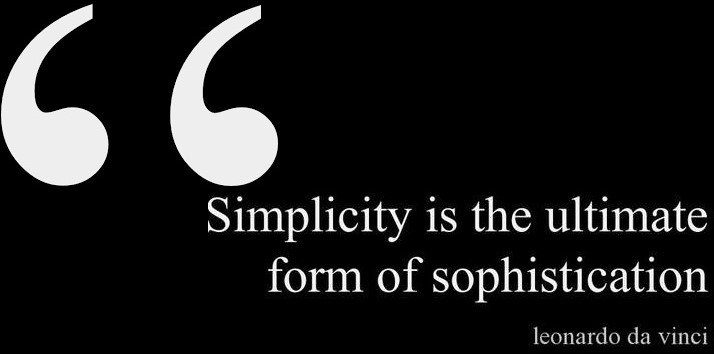
James’ use of “philosophic” indicates:
-
Depth of Inquiry: His writings delve into profound questions about the meaning of life, the nature of the self, and the universe. The term “philosophic” underscores a systematic and rigorous approach to these inquiries, moving beyond mere surface-level musings.
-
Integration of Philosophy and Spirituality: James seeks to integrate rational philosophical discourse with spiritual experiences and insights. By using the word “philosophic,” he highlights the balanced consideration of logical reasoning and transcendent understanding.
-
Universal Perspective: The term “philosophic” encompasses a universal perspective, one that seeks to understand truths applicable to all of humanity, transcending cultural and religious boundaries. This aligns with James’ goal of finding common spiritual ground between different traditions.
“For those ready to awaken to their full potential and become the best version of themselves—here I am, with a presence to guide you.”
Philosophic Mentoring is not just abstract ideas, but is the process of directly transcending barriers through insight. James’s insightful yet straightforward teachings have guides you to discover a sense of Presence in your everyday lives. This is what makes these insights significant and effective. Investigating the sense of separation reveals a body-mind cycle where it manifests in the mind as images, ideas, and beliefs, and in the body as feelings of confinement, localization, and limitation.
Through this ongoing exploration, he derives insights into the broader patterns of thinking, which he then tests for logical consistency and practical applicability in daily life. He encouraged us to live gently on this earth, and to foster a profound respect for nature. His teachings transcend conceptual boundaries, offering new perspectives on the universal human quest for truth that are both contemporary and timeless.
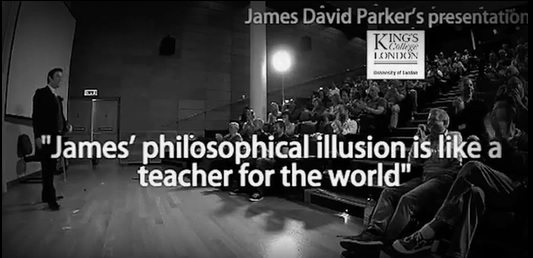
His unique perspective have been shaped by these extensive studies of various philosophical and practical traditions. His impressive breadth of understanding across multiple philosophical traditions and contemporary teachings has given him a deep understanding of the human experience and our shared being. True philosophical growth is more than accumulating knowledge or mastering specific practices. It’s about embodying wisdom, awareness, and insight and applying it daily.
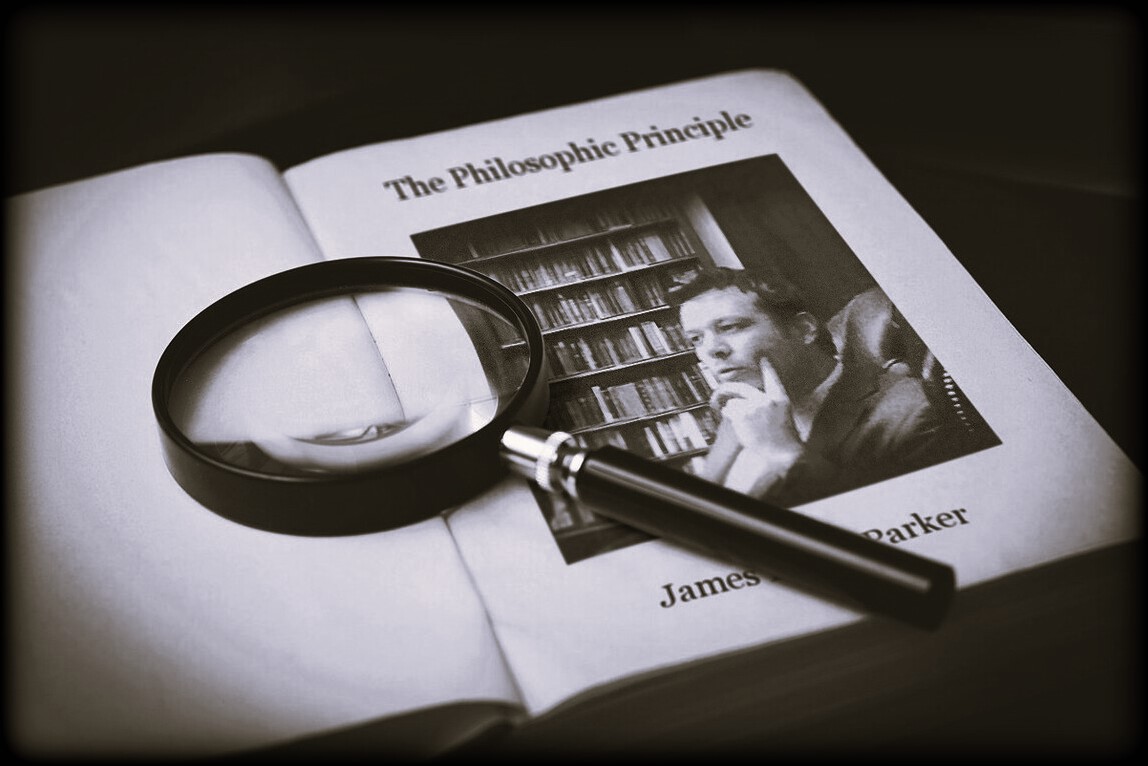
Philosophy serves as a prompt for him and others to reassess and question what is often taken for granted. Renowned as a visionary philosopher and teacher, he transcends conventional philosophies and religions, focusing instead on universal human concerns: the complexities of modern society, its violence and corruption, and the individual pursuit of happiness and security.
His relentless passion for inquiry and the pursuit of truth delve into the intricacies of human consciousness and the potential for transformative personal growth through introspection and insight. His teachings are timeless and universal, which inspire a new perspective on truth and meaning in life. James communicates with clarity and empathy, tailoring his message to resonate personally with each listener.
“The enchanting journey is not just a collection of experiences, but rather a feeling of both belonging to and being the enchantment itself.”
He incorporates these insights into his own life and practice, gaining a first-hand understanding of how they can be applied to daily life. Drawing upon the values of the Stoic sage. These realizations are not just abstract concepts to James – they are realizations that he applies in his everyday life.
It is an approach to spirituality that emphasizes direct experience and insight, rather than simply accepting information. James sees that true spiritual understanding is not gained through blind faith or adherence to external rules and rituals, but rather through the direct experience of one’s own consciousness and the exploration of one’s own being.
“Vibrancy and life elude expression when confined within static, meticulously constructed forms or through rehearsed gestures.”
James’ philosophic mentoring is for continuing professional development, and lifelong learning. Within this art, effectiveness is measured by practically using that which attains success. James speaks of a “philosophic” approach to life, he means engaging in clear insights by examining fundamental questions about existence.
His mentoring emphasizes the importance of developing one’s own philosophic insights to deeper understanding, clarity, and wisdom in life. A philosophic inquiry can help cultivate a sense of purpose and foster a harmonious relationship with the world around them.
“At the heart of life lies the insight that experience are indivisible expressions of existence. However, the unexamined energies of routine and habit often control our thoughts, emotions, and actions, leading us to believe the false notion that we are disconnected individuals, separate from the external world and those around us. To challenge this misconception, I demonstrate that everything and everyone are expressions of existence with no inherent separation. This realization highlights the primary essence in which all things occur.”
Those who have studied his teachings have reported significant development and growth. Avoiding affiliations with terms such as guru, spiritual teacher, he radiates a “natural authority” and presence. James communicates openly and directly with his audience, steering clear of any inclination to sway or assert ideas.
There exists no fixed abode, no defined structure, no institutional confinement, and no philosophical mould for truth. Upon recognizing this, you grasp that this dynamic essence is an intrinsic part of your own existence.
“The evolution of humanity lies in its philosophical realization, which is a journey that requires dedication. Philosophical mentoring is free from mere concepts and emotional dependencies. Many individuals are eager for a rapid transformation, which is reminiscent of a historical act of idol worship, but it is deceptive and unproductive.”
The philosophic approach involves questioning and testing one’s own assumptions and experiences, and being open to new insights and perspectives. This process of inquiry and self-exploration is a key aspect of the spiritual journey and can lead to greater understanding, inner peace, and spiritual growth.
Referring to a holistic approach to life that involves deep questioning, self-exploration, and a commitment to wisdom, James understands that true happiness and fulfillment come not just from achievements, but from the sense of being.
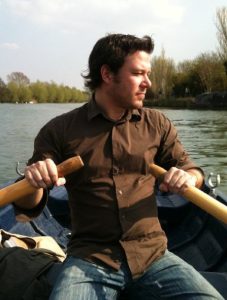
At the heart of every philosophical journey is a desire to discover one’s inner truth, purpose, and connection to the world around us. It’s an intimate journey that requires dedication, perseverance, and a willingness to face the challenges and uncertainties that come with any journey of self-discovery.
This unique philosophic mentoring can help you integrate critical thinking, creativity, and presence awareness. While he can provide guidance and support, ultimately, the responsibility for your philosophical growth and well-being rests with you. His approach encompasses all aspects of life, providing insights that appreciates the common threads, recognizing their profound impact on everyday life and making it his purpose to share these insights.
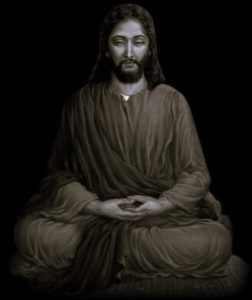
The philosophic mentoring will invites us to engage in deep reflection, question assumptions, and seek greater understanding of the mysteries of existence through contemplation. James sees the power of shared responsibility and cooperation, understanding that these qualities have the potential to motivate us.
His philosophic mentoring is unique in that he doesn’t simply regurgitate; he uses his extensive insights with an exceptional ability to utilise them. The programme understands that everyone is different, and what resonates with one person may not resonate with another. That’s why the mentoring applies a unique perspective to connect with individuals in a way that speaks to them.

Transcendent of a fixed formula, James’ mentoring effortlessly integrates with diverse formulas. It embraces all avenues without being constrained by any, and employs methods or approaches that align with its purpose without attachment to it. James’s insights always communicates the reality of the present moment, which may change your habitual patterns of thinking, reminding you that this moment is an opportunity for self-discovery. This realization has enabled James to be fully present for others and facilitate profound transformations in their lives.
By understanding how insights resonate with different personality types is crucial in offering a practical and philosophic journey. The mentoring programme encourages humanity to see ourselves as interconnected and work collaboratively with our shared being both for the present and to manifest the apparent brighter future.
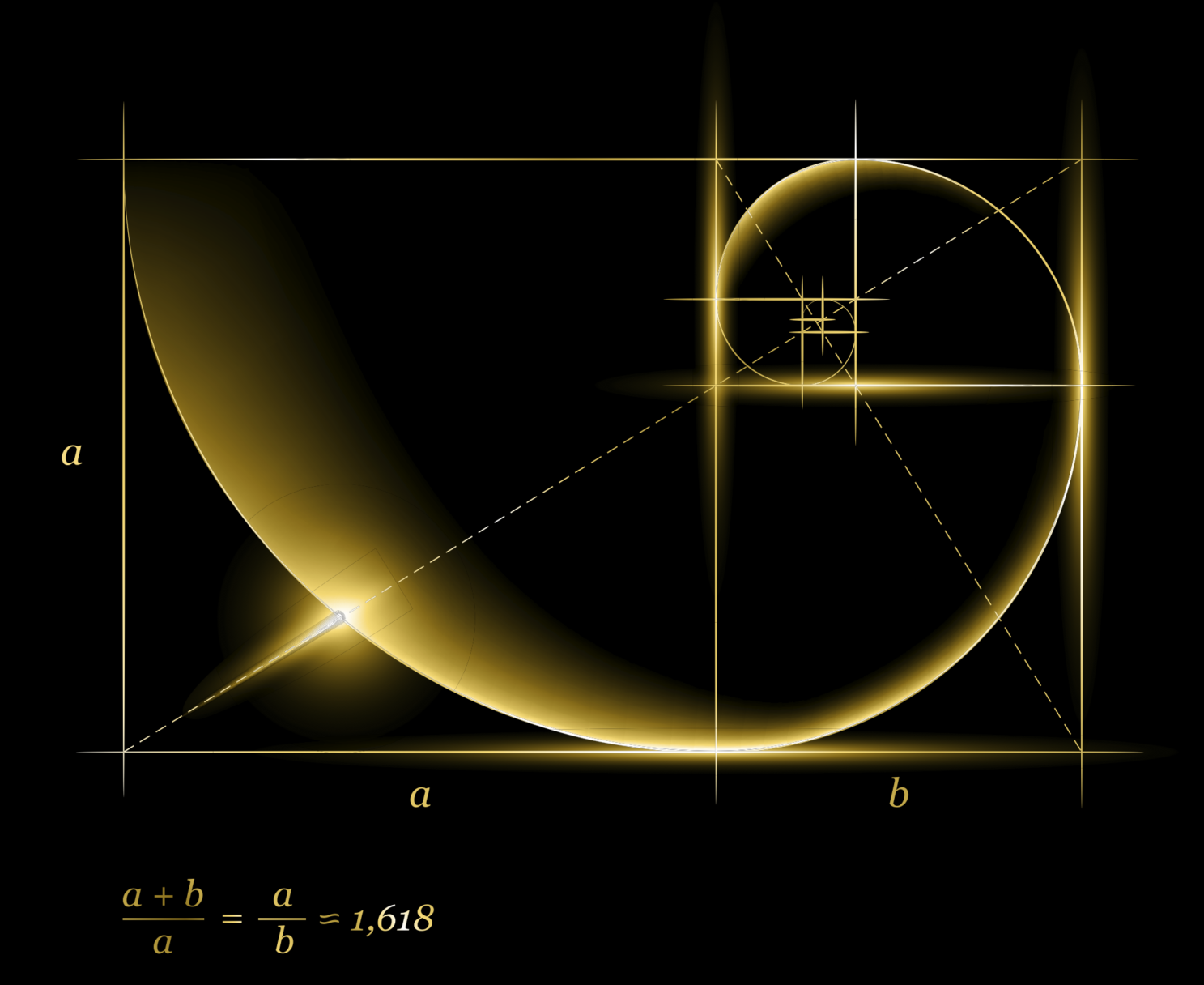
Today, James actively shares his insights and practices in the realm through hosting sessions. Reflecting on this transformative period, his exploration led James to understand and embrace these non-conceptual and direct insights into our shared existence. The journey of one’s inner truth unfolds without a prescribed route. It thrives on vitality and, consequently, evolution. Through his comprehensive journey, James harmonizes contemporary discoveries with ancient wisdom.
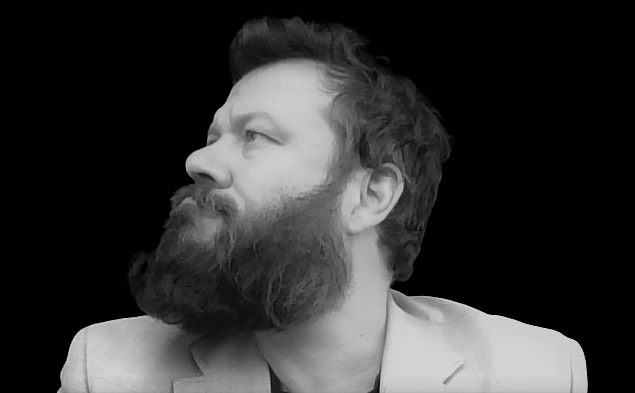
“Join me on a journey of captivating creativity, and experience the beauty and complexity of the human experience in a whole new way.”
Core Outline of James’s Teachings
James’s teachings are grounded in the understanding of existence as the Presence that underlies reality. This fundamental Presence is not divided but complete and all-encompassing. The perception of a barrier is viewed as a mental construct, arising from our own process of self-limitation. By transcending this illusion of separateness and limitation, one can directly experience Presence itself.
Philosophic Depth and Universal Perspective
James’ use of the term “philosophic” is multifaceted, reflecting the depth and breadth of his inquiry into the nature of existence, the self, and the universe. His teachings delve into profound questions about life’s meaning, emphasizing a systematic and rigorous approach that moves beyond surface-level musings. The term underscores his effort to integrate rational philosophical discourse with spiritual experiences and insights, highlighting a balanced consideration of logical reasoning and insightful understanding. This “philosophic” approach encompasses a universal perspective, seeking truths that apply to all of humanity, transcending cultural and religious boundaries. This aligns with James’s expression of finding both common spiritual ground and inherent unity between different traditions.
Seeking Understanding
James observed that people often try to explain the origins of a material universe or a limited self, assuming these are foundational truths. This perspective tends to shape all philosophical or metaphysical inquiries. However, James proposed that true understanding starts with recognizing Presence directly. Once this basic truth is realized, the need to rationalize the world or the self limitation lessens, as these are understood to be secondary constructs rather than primary realities.
The Illusion of Self-Limitation
James explained that the difficulty in experiencing Presence arises from this self-limitation. This limitation is not a tangible entity but a pervasive condition characterized by subtle mental and emotional reactions. It stems from misidentifying this limited mechanism with who one inherently is, creating an artificial barrier against the inherent Presence of ones existence. This leads to a sense of separation, limitation and ongoing searching. Personal narratives are then shaped by the effort to reinforce and reconnect a limited self with perceived separateness. Efforts to achieve wholeness from a standpoint of self-limitation are futile because one is fundamentally and unconsciously reinforcing it. True recognition of Presence requires moving beyond self-limitation and realizing the illusory nature of separation. This realization is facilitated through a committed enquiry, observation and communication.
Path to Realization
Human beings cannot attain this realization through external structures or internal doctrines. It is not achieved through just philosophical knowledge or psychological techniques. Instead, it is discovered through understanding one’s own thinking as Presence, observing and contemplating one’s own experiences. The false sense of security that comes from this self-limitation creates a barrier, shaping our perceptions and causing division among people. The conditioned mind and the superficial illusions and facades of culture and society, which stem from self-limitation, do not define our true individuality.
Nature of Thought and Freedom
Thought is inherently tied to the recollection of past experiences and acquired information. This connection makes thought, while practically useful, inherently constrained by its own limitations, perpetuating and maintaining a continuous sense of its own restriction. Awareness of one’s own thoughts brings light to the illusion of separation between the internal and external. This insight, untainted by past influences and time, leads to a profound transformation. True freedom arises from the letting go of these limiting psychological constructs imposed by thought. Only through this process can the inherent intelligence of Presence be revealed.
The Power of Presence: Transform Your Life with James’ Philosophic Mentoring
James’ unique approach to philosophic mentoring is designed to help you cultivate and enhance your presence in all its forms—whether it’s physical, mental, emotional, influential, existential, or being fully present in the now. By working with James, you can unlock the full potential of your presence in every aspect of life.
